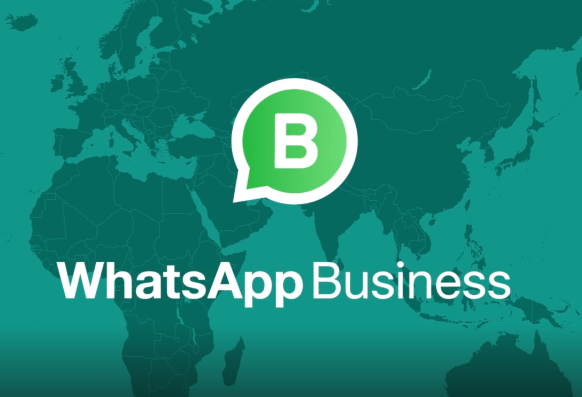Introduction to WhatsApp Automation
In the realm of digital communication, WhatsApp automation emerges as a game-changer. It refers to the process of incorporating artificial intelligence (AI) and machine learning algorithms in WhatsApp to manage and respond to messages without manual intervention.
Leveraging automation in WhatsApp brings numerous advantages. Notably, it allows businesses to operate efficiently, managing high volumes of conversations simultaneously. With automated responses, companies can provide instant support, improving customer satisfaction rates.
In addition, automation enhances productivity significantly. By automating routine tasks, businesses free up valuable time for their teams to focus on strategic initiatives that require human insight and creativity.
A key element of WhatsApp automation is automated conversations. These are pre-set messages or replies triggered by specific events or user inputs. For instance, a customer may receive an automated welcome message when they initiate a chat or an instant reply when making an inquiry after office hours.
In essence, WhatsApp automation enables businesses to cultivate stronger relationships with their customers while optimizing efficiency and productivity.

Understanding WhatsApp API and Business App
WhatsApp API is an interface that allows developers to build software applications that interact with the WhatsApp messaging system. Its features include the ability to send and receive messages, manage contacts and groups, and even set up automatic responses.
The API enables businesses to create personalized experiences for customers by integrating WhatsApp into their existing communication channels. For instance, a retailer can use the API to send order confirmations and tracking updates to customers via WhatsApp instead of traditional email.
Accessing and setting up the WhatsApp API involves a few steps. First, businesses need to apply for access via Facebook’s developer portal. Once approved, they can start developing their application using the API documentation as a guide.
On the other hand, WhatsApp Business app is a standalone application designed specifically for small business owners. It offers several automation features such as quick replies (for frequently asked questions), greeting messages (to welcome new customers), and away messages (to inform customers when you’re unavailable).
In terms of benefits, using the WhatsApp Business app for automation can save time, reduce manual labor, and improve customer service. For example, instead of manually typing out responses to common inquiries, businesses can set up quick replies that are automatically sent when certain keywords are detected in a customer’s message.
Both the WhatsApp API and Business app serve as powerful tools in automating business communications. They offer different levels of control and customization based on your business needs. Whether you’re looking to integrate WhatsApp into your existing systems or simply want a more efficient way to manage your WhatsApp conversations, these tools provide robust solutions.
Up next, we delve into how you can leverage these tools to build an automated WhatsApp bot.
Building an Automated WhatsApp Bot
Understanding the power of WhatsApp bot builders can be a game-changer for your business. These tools utilize the message automation capabilities of WhatsApp to streamline communication, enhance customer service, and boost productivity.
A variety of bot builders are available, each offering unique features to cater to different business needs. Some common features include automated replies, personalized messages based on user data, and analytics for measuring bot performance. With such a tool at your disposal, you can ensure that no customer query goes unanswered.
Building an automated WhatsApp bot involves several steps:
- Identify Your Requirements: Define what you want your bot to achieve. This could be answering frequently asked questions, booking appointments, or sending reminders.
- Choose a Bot Builder: Select a builder that suits your requirements and budget.
- Design Your Bot’s Conversation Flow: Plan how your bot will interact with users. This includes the questions it will ask and the responses it will provide.
- Test Your Bot: Before launching, test your bot thoroughly to ensure it functions as expected.
- Launch Your Bot: Once you’re satisfied with its performance, launch your bot and monitor its interactions with users.
When exploring message automation capabilities, it is crucial to design effective automated messages. These should be concise, clear and engaging. They should also provide value to the user – whether by answering a query or providing useful information.
Proactive Notifications with WhatsApp API
Proactive notifications are another powerful feature of WhatsApp’s automation capabilities. These allow businesses to send personalized messages to users based on their behavior or preferences[^1^].
For example, a retail business could use proactive notifications to inform customers about upcoming sales or new product releases. Similarly, a service provider could use them to send appointment reminders or updates about service status.
Implementing proactive notifications with the WhatsApp API involves:
- Data Collection: Gather data about user behavior and preferences.
- Message Creation: Create personalized messages based on this data.
- Message Scheduling: Schedule messages to be sent at optimal times.
- Message Delivery: Send messages via the WhatsApp API.
IVR Call Deflection with WhatsApp API
In addition to proactive notifications, businesses can also leverage IVR (Interactive Voice Response) call deflection with the WhatsApp API[^2^]. This technology redirects callers from a voice call system to a digital channel like WhatsApp.
IVR call deflection offers numerous benefits:
- Reduces call waiting times
- Enables round-the-clock customer service
- Provides more convenient service for customers who prefer texting over calling
- Frees up customer service representatives for complex queries
To implement IVR call deflection with the WhatsApp API:
- Set Up IVR System: Ensure your phone system supports call deflection.
- Configure Deflection Settings: Set up parameters for when calls should be deflected (e.g., during high call volumes or outside business hours).
- Create Automated Messages: Design automated responses that guide users through resolving their queries on WhatsApp instead of via voice call.
- Monitor Performance: Track how effectively calls are being deflected and adjust settings as necessary.
WhatsApp Business Automation
WhatsApp Business Automation refers to the use of software or technological tools to handle repetitive tasks within WhatsApp Business. This powerful functionality allows businesses to streamline their operations, improve communication efficiency, and enhance customer experiences.
Advantages of WhatsApp Business automation are manifold:
- Improved Efficiency: Manual tasks like responding to frequently asked questions can be automated, freeing up valuable time for your team.
- Enhanced Customer Experience: With automated responses, customers receive immediate replies even outside business hours.
- Reduced Errors: Automation eliminates human error from routine tasks.
- Scalability: Automation enables businesses to handle a larger volume of messages without needing additional manpower.
- Automate Quick Replies:
Now, let’s delve into how you can automate repetitive tasks in WhatsApp Business.
- Navigate to the ‘Business Tools’ section in your WhatsApp Business account.
- Select ‘Quick replies’ and add responses to common queries.
- Assign shortcuts to these replies for easy access.
Set Up Automated Messages:
- In the ‘Business Tools’ section, select ‘Away message’.
- Customize this message for when you’re not available to respond immediately.
- Specify the schedule for triggering this away message.
Create Greeting Messages:
- Within ‘Business Tools’, choose ‘Greeting message’.
- Craft a welcoming message for new customers or after 14 days of no interaction.
Use Labels:
- Labels help you organize chats and highlight important messages.
- Go to a chat, tap on ‘Menu’ then ‘Label’ to assign a label.
Catalogue Products:
- Under ‘Business Tools’, click on ‘Catalog’.
- Add products or services here for easy sharing with customers.
By following these steps, you can efficiently manage your customer interactions and improve their overall experience with your business via WhatsApp Business Automation. As we shift focus towards enhancing customer conversations through automation, we will explore how you can leverage software solutions for even better conversational sales support.
Enhancing Customer Conversations with Automation
In the realm of customer service, it’s essential to keep up with emerging technologies and trends. One such trend that has been making waves is customer conversation management software. This software allows businesses to automate and streamline customer service operations, ensuring customer inquiries are handled efficiently and effectively.
A key component of this software is its ability to integrate with various communication platforms, including WhatsApp. By integrating with WhatsApp, businesses can leverage the platform’s vast user base and provide seamless customer service.
Automation and Conversational Sales Support
Automation plays a vital role in enhancing conversational sales support. It provides a swift response to customer inquiries, essential for maintaining customer satisfaction levels. For instance, automated responses can handle common queries, freeing up your human resources to tackle more complex issues.
The beauty of automation lies in its ability to be available 24/7. Unlike human agents who need breaks and have fixed working hours, automated systems can operate round the clock, providing instant responses to customers regardless of the time or day.
Automated Responses and FAQ Menu
Automated responses are pre-programmed messages that trigger when certain conditions are met. These could be specific keywords or phrases used by customers. Coupled with a well-structured FAQ menu, businesses can address a considerable amount of common queries without human intervention.
Creating an effective FAQ menu involves understanding your customers’ needs and questions. With this knowledge, you can create precise answers that satisfy their queries quickly.
Example FAQ menu:
- What are your operating hours?
- How do I return an item?
- Where is my order?
- How do I change my account information?
This approach reduces wait times and enhances the overall customer experience.
Greeting Messages and Away Messages
Greeting messages serve as an immediate acknowledgment of a customer’s inquiry or comment. They establish the first point of contact between the business and the client, setting the tone for subsequent interactions.
Away messages serve a similar purpose but are primarily used when there’s no immediate response possible from your side. They inform customers about your unavailability and assure them their query will be attended to at the earliest opportunity.
Here’s a quick look at how these automated messages might look:
Greeting Message: “Hello! Thanks for reaching out to us. We’re here to help! Could you please provide more details about your inquiry?”
Away Message: “We appreciate your message! Our team is currently unavailable but we’ll respond as soon as we return.”
These automation features drastically improve the efficiency of WhatsApp as a communication tool by promptly managing customer expectations.
Stay tuned for more insights on how automation can revolutionize your WhatsApp Business strategy through API integration in our upcoming section.
WhatsApp Business API Integration
In the realm of digital communication, WhatsApp Business API integration is a game-changer. It is an advanced feature that allows businesses to seamlessly integrate their WhatsApp Business account with other systems and software in their business ecosystem.
This integration goes beyond merely linking two systems. It enables an interactive flow of information, allowing enterprises to unlock powerful automation capabilities and streamline their workflows.
Let’s delve into the nuts and bolts of this process:
Integration with Customer Relationship Management (CRM) Systems
A CRM system can be a valuable asset for any business. Integrating it with WhatsApp Business API can further enhance its value by automating customer interactions and enabling real-time communication.
For instance, when a customer sends a message on WhatsApp, the conversation can be automatically logged in the CRM system. This allows sales and support teams to have access to all customer interactions at their fingertips.
Integration with Enterprise Resource Planning (ERP) Systems
Integrating WhatsApp Business API with an ERP system can lead to increased operational efficiency. For example, order confirmations, shipping updates, and invoice details can be automatically sent to customers via WhatsApp messages, thereby enhancing the customer experience.
Integration with Marketing Automation Tools
This integration allows businesses to leverage the power of WhatsApp messaging in their marketing campaigns. Automated messages can be scheduled and personalized based on customer data stored in the marketing tool.
As evident, WhatsApp Business API integration paves the way for greater efficiency and productivity by automating manual tasks and facilitating real-time communication. It’s not about replacing human interaction, but empowering it through technology.
Conclusion
Undoubtedly, automation on WhatsApp provides remarkable opportunities for businesses. It not only enhances productivity but also improves customer service by timely responses and personalized interactions. Automating tasks within WhatsApp, using the Business API or the Business app, presents a wealth of possibilities from automated bots to IVR call deflection.
Companies can streamline operations, manage conversations more efficiently and even integrate with other systems. This flexibility is especially beneficial for businesses looking to optimize their workflow and engage customers in a more meaningful manner.
Embracing new technologies can be challenging but resources are available to aid in this transition. One such resource is We Are Gabba’s WhatsApp BOT solutions. We provide comprehensive tools and solutions to help businesses leverage the power of automation on WhatsApp.
Venturing into the world of automation can redefine business efficiency and effectiveness. So, consider taking the first step today and book a demo with us here!


